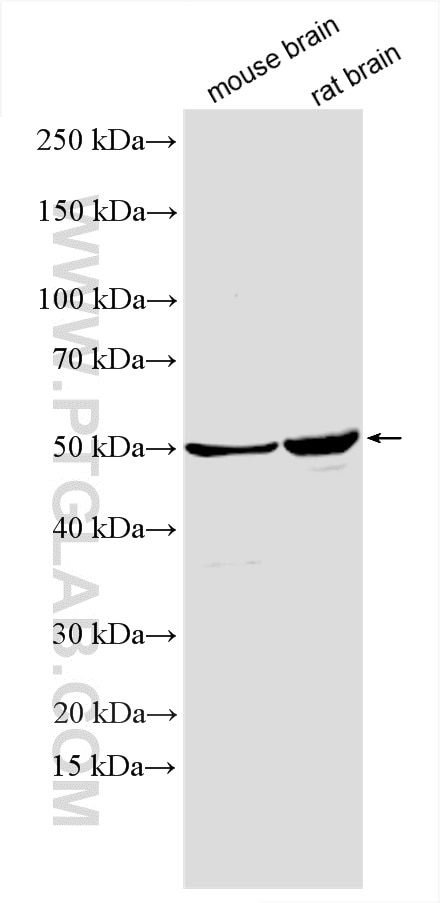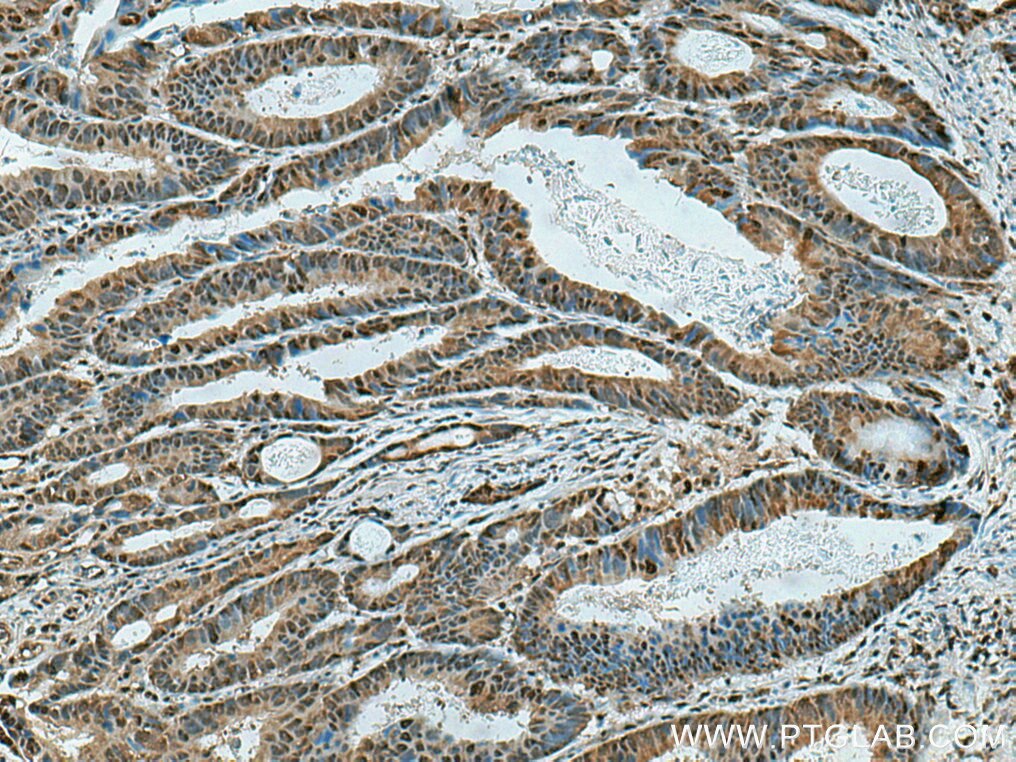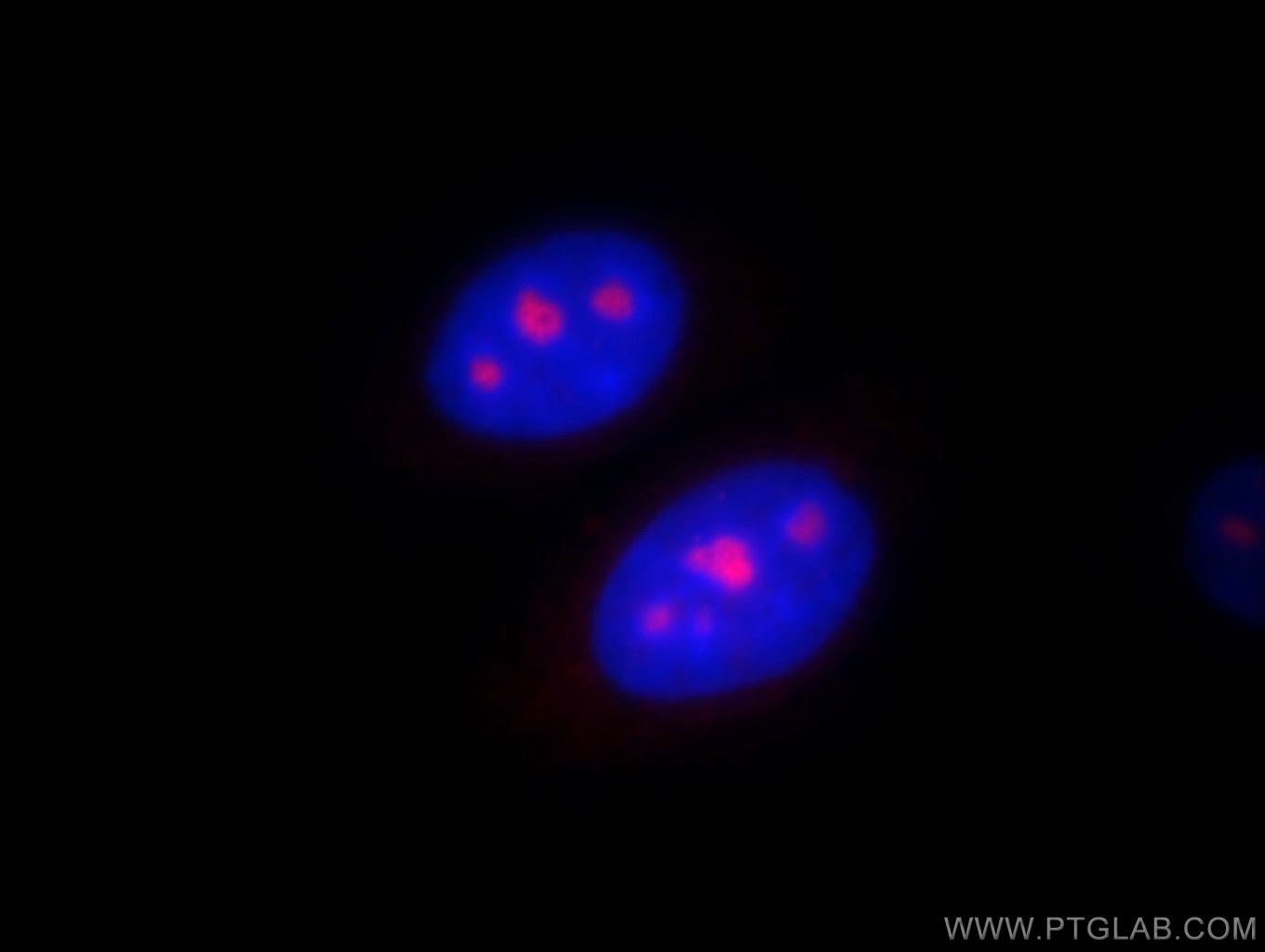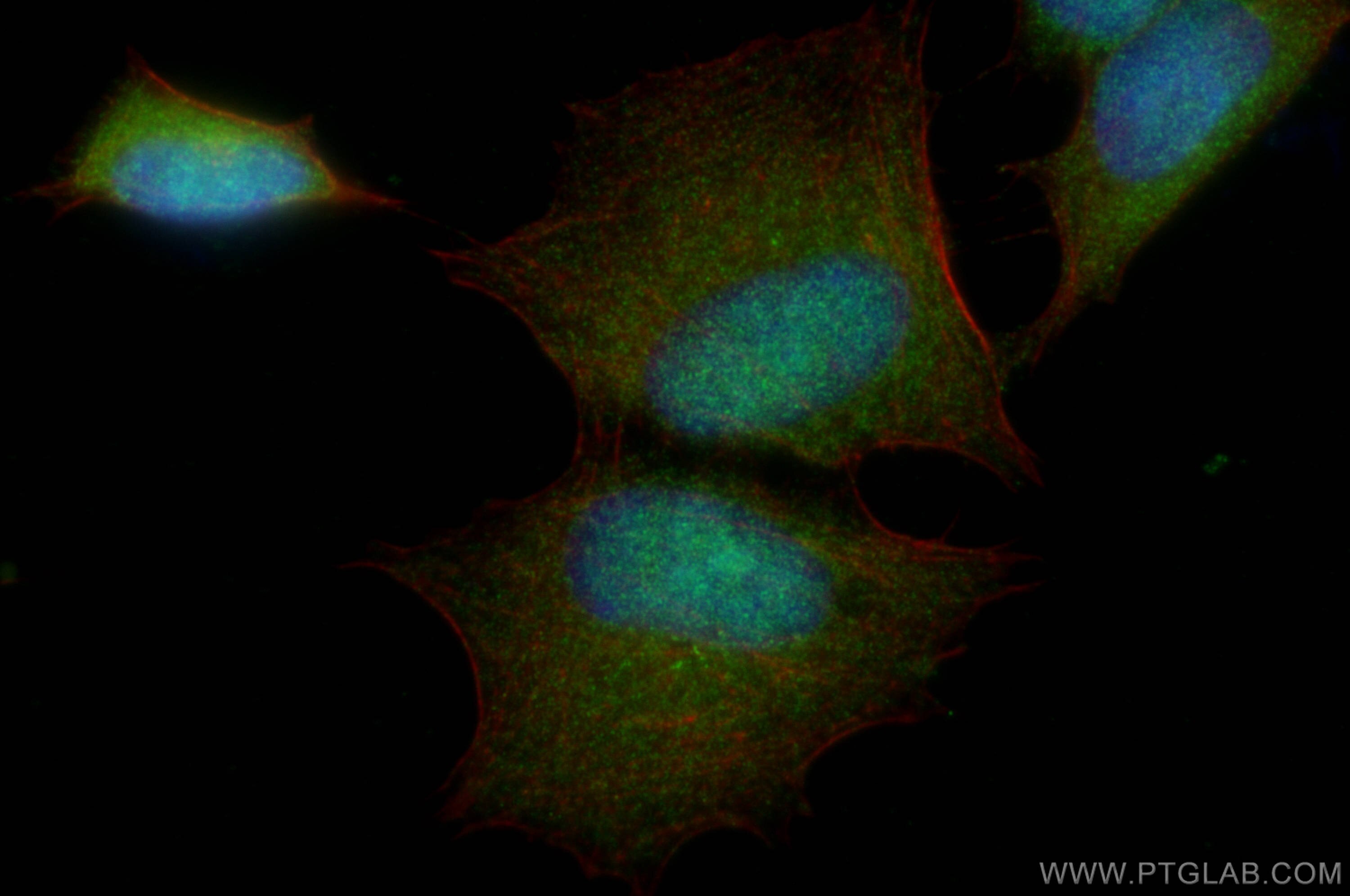PSMC4 Polyklonaler Antikörper
PSMC4 Polyklonal Antikörper für WB, IHC, IF/ICC, ELISA
Wirt / Isotyp
Kaninchen / IgG
Getestete Reaktivität
human, Maus, Ratte
Anwendung
WB, IHC, IF/ICC, ELISA
Konjugation
Unkonjugiert
Kat-Nr. : 11389-1-AP
Synonyme
Geprüfte Anwendungen
| Erfolgreiche Detektion in WB | Maushirngewebe, Rattenhirngewebe |
| Erfolgreiche Detektion in IHC | humanes Kolonkarzinomgewebe Hinweis: Antigendemaskierung mit TE-Puffer pH 9,0 empfohlen. (*) Wahlweise kann die Antigendemaskierung auch mit Citratpuffer pH 6,0 erfolgen. |
| Erfolgreiche Detektion in IF/ICC | SH-SY5Y-Zellen, HepG2-Zellen |
Empfohlene Verdünnung
| Anwendung | Verdünnung |
|---|---|
| Western Blot (WB) | WB : 1:500-1:2000 |
| Immunhistochemie (IHC) | IHC : 1:50-1:500 |
| Immunfluoreszenz (IF)/ICC | IF/ICC : 1:200-1:800 |
| It is recommended that this reagent should be titrated in each testing system to obtain optimal results. | |
| Sample-dependent, check data in validation data gallery | |
Veröffentlichte Anwendungen
| WB | See 4 publications below |
| IHC | See 1 publications below |
| IF | See 1 publications below |
Produktinformation
11389-1-AP bindet in WB, IHC, IF/ICC, ELISA PSMC4 und zeigt Reaktivität mit human, Maus, Ratten
| Getestete Reaktivität | human, Maus, Ratte |
| In Publikationen genannte Reaktivität | human, Maus, Ratte |
| Wirt / Isotyp | Kaninchen / IgG |
| Klonalität | Polyklonal |
| Typ | Antikörper |
| Immunogen | PSMC4 fusion protein Ag1943 |
| Vollständiger Name | proteasome (prosome, macropain) 26S subunit, ATPase, 4 |
| Berechnetes Molekulargewicht | 418 aa, 47 kDa |
| Beobachtetes Molekulargewicht | 43-50 kDa |
| GenBank-Zugangsnummer | BC014488 |
| Gene symbol | PSMC4 |
| Gene ID (NCBI) | 5704 |
| Konjugation | Unkonjugiert |
| Form | Liquid |
| Reinigungsmethode | Antigen-Affinitätsreinigung |
| Lagerungspuffer | PBS with 0.02% sodium azide and 50% glycerol |
| Lagerungsbedingungen | Bei -20°C lagern. Nach dem Versand ein Jahr lang stabil Aliquotieren ist bei -20oC Lagerung nicht notwendig. 20ul Größen enthalten 0,1% BSA. |
Hintergrundinformationen
PSMC4(proteasome (prosome, macropain) 26S subunit, ATPase, 4) is also named as TBP7, S6, TBP7, MIP224 and belongs to the AAA ATPase family. The 26S protease is involved in the ATP-dependent degradation of ubiquitinated proteins. The predicted 458-amino acid TBP7 protein is 57% identical to TBP1 and they can form heterodimers(PMID:8419915).
Protokolle
| PRODUKTSPEZIFISCHE PROTOKOLLE | |
|---|---|
| WB protocol for PSMC4 antibody 11389-1-AP | Protokoll herunterladen |
| IHC protocol for PSMC4 antibody 11389-1-AP | Protokoll herunterladenl |
| IF protocol for PSMC4 antibody 11389-1-AP | Protokoll herunterladen |
| STANDARD-PROTOKOLLE | |
|---|---|
| Klicken Sie hier, um unsere Standardprotokolle anzuzeigen |
Publikationen
| Species | Application | Title |
|---|---|---|
Neuron Antibody Therapy Targeting RAN Proteins Rescues C9 ALS/FTD Phenotypes in C9orf72 Mouse Model. | ||
Nutrients Role of Epigallocatechin Gallate in Glucose, Lipid, and Protein Metabolism and L-Theanine in the Metabolism-Regulatory Effects of Epigallocatechin Gallate. | ||
Cells The Prostaglandin E2 Receptor EP4 Promotes Vascular Neointimal Hyperplasia through Translational Control of Tenascin C via the cAPM/PKA/mTORC1/rpS6 Pathway | ||
Neuropharmacology Activated mTORC1 signaling pathway aggravates cisplatin induced oxidative damage by inhibiting autophagy in mouse cochlear hair cells |
Rezensionen
The reviews below have been submitted by verified Proteintech customers who received an incentive for providing their feedback.
FH Tatyana (Verified Customer) (03-11-2023) | Was tested in ICC on PFA-fixed human cells. Provides a signal that looks specific (as compared to no primary control). 4% PFA followed by methanol permebealisation; antibody prepared in 5% goat serum in PBST, overnight incubation (no blocking step).
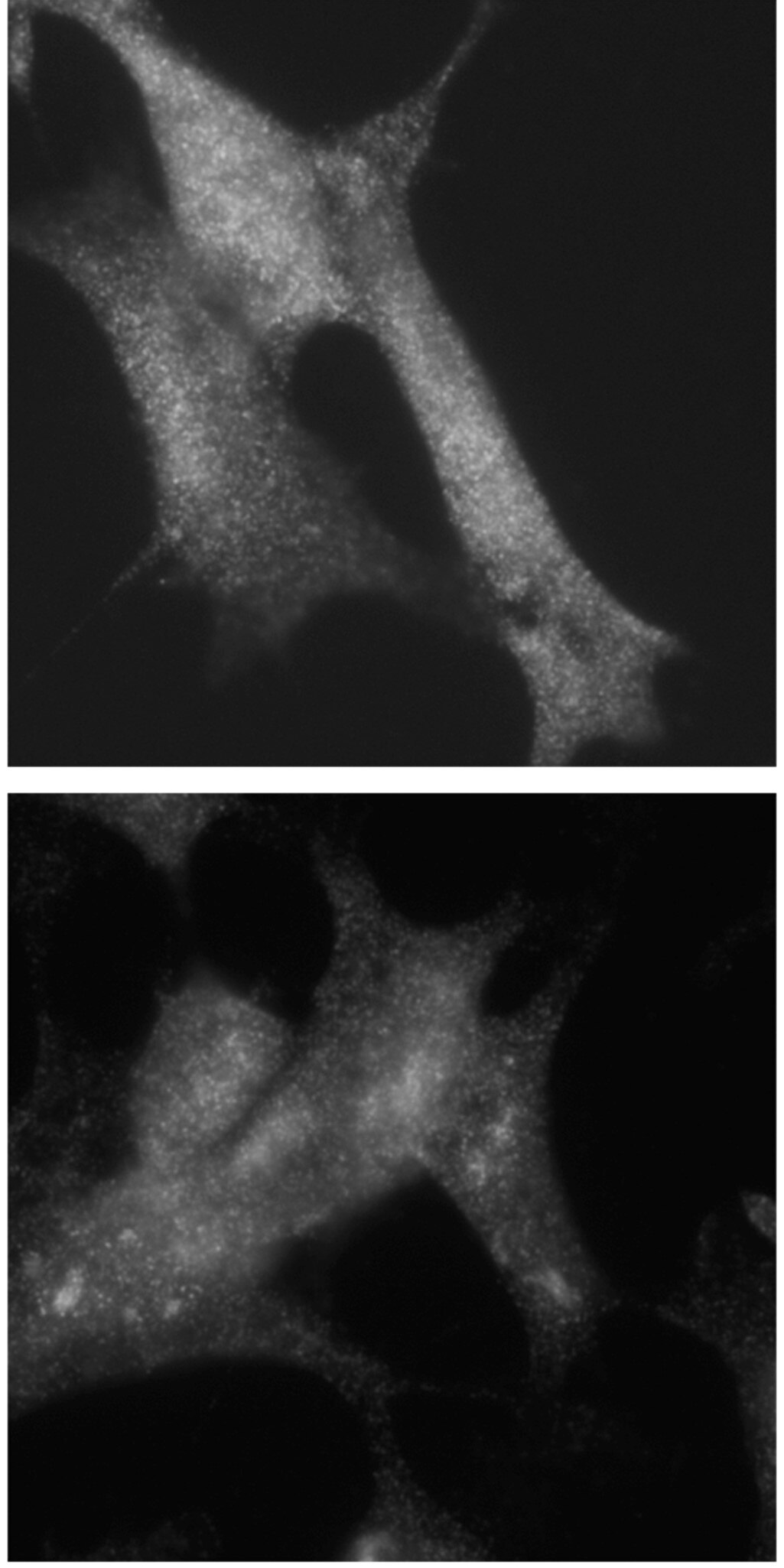 |
